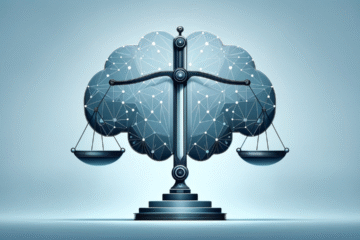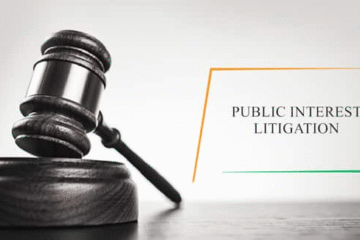This Article is written by Vishwajeet Singh, Som Law College Prayagraj, UP, 4th Semester (LL. B), intern under Legal Vidhiya.
Abstract
The liberty of the person is one of the oldest Principle which was recognised at the time of growth of humanity. It’s a part of the Magna Karta. In India, the conception of ‘liberty’ has been accorded a veritably far fledge interpretation. In a chain of judgements, the Supreme Court of India has rejected the view that liberty addresses simply freedom from fleshly restraint, but held that it includes those right and boons that have been recognized as being integral to the orderly pursuit of happiness by figure men.
- In its widest breadth include rights like Right to travel abroad, Right of a internee to Speedy trail (Hussainara Khatoonv. Home Secretary)
- The Supreme Court has interpreted the word “Life” and “Liberty” freeheartedly.
- Composition 21 is now being invoked nearly as residuary rights.
- It has led to numerous directive principles being executed as FRs. The Right to particular liberty means freedom from physical restraint in case of A K Gopalanv. State of Madras (1950). Right to life and personal liberty is the early right which every human being far and wide at all times ought to have. In India, right to life and particular liberty is given in Article 21 of the Constitution.
Introduction
These Fundamental preface In India, the Protection of Life and Personal Liberty is a Abecedarian Right granted to Citizens under Part iii of the Constitution of India, 1950. These Fundamental Rights represent the foundational values cherished by the people and are granted against conduct of the state, The terms ‘personal liberty’ encompasses a wide variety of right of the people, which are a result of the elaboration in the interpretation of Article 21 by the courts over the times [[1]]. Article 21 of this part states that “No person shall be deprived of his life or particular liberty except according to the procedure liberty established by law”, and this is known as the Right to Life and particular Liberty. The right to live a free, full and staid life is one of the most introductory principles of mortal actuality. Every person is entitled to live their life on their own terms, with no illegal hindrance from others. A successful republic can only be one that guarantees its citizens the right to cover their own life and liberty.
Origin and Evolution
The conception of Liberty in the Indian Constitution that was inspired by the 5th and 14th emendations of the US Constitution was considered to encompass a veritably wide meaning of the term. But the Indian Constitution makers had combined the conception of liberty with the word ‘particular’ and downgraded its compass. But this wasn’t an oversight, as the Indian Constitution had formerly handed other liberties under Composition 19 as well as other vittles’ of Part iii of the Constitution.
Personal Liberty
The freedom of the individual to do as he pleases limited only by the authority of politically organized society to regulate his action to secure the public health, safety, or morals or of other honoured social interests. ‘particular Liberty’ in composition 21 means nothing further than the liberty of the physical body that’s freedom from arrest(discipline) and detention without the authority of law. “Law” meant “state made law” and rejected the plea of the Principle of Natural Justice
The meaning of Personal Liberty of a citizen in India has evolved and its scope has widened. Prior to the Maneka Gandhi case, it had a relatively narrower scope, comprising only some liberties of a person.
Personal Liberty was first interpreted in the case of A.K. Gopalan v. State of Madras in 1950, which is explained below.
A.K. Gopalan v. State of Madras (1950): Prevention Detention
Facts:
In this case, the Petitioner, a communist leader, was detained under the Preventive Detention Act, 1950. He claimed that such detention was illegal as it infringed upon his freedom of movement granted in Article 19(1)(d). Of the Constitution of India and thus also violated his Personal Liberty as granted by Article 21 since freedom of movement should be considered a part of a person’s personal liberty.
Judgement:
The Court started that personal liberty meant liberty of the physical body and thus did not include the rights given under Article 19(1). Hence, Personal Liberty was considered to include some rights like right to sleep and eat, etc. While the right to move freely was relatively minor and was not included in one’s “personal liberty”.
The subsequent case of Kharak Singh v. State of U.P. and Ors. (1964) saw an expansion in the meaning of Personal liberty, explained as follows.
Kharak Singh v. State of U.P. and Ors (1964): Personal Curtailed
Facts:
The petitioner, in this case, was accused of dacoity but was released due to a lack of evidence against him. The Uttar Pradesh Police then began surveillance over him which included domiciliary visits at night, periodical enquiries, verification of movements and the like. The petitioner filed a writ petition challenging the constitutional validity of this State action.
Judgement:
It was held that the right to Personal liberty constitutes not only the right to be free from restrictions placed on one’s movements but also to be free from encroachments on one’s private life. therefore, particular liberty was considered to include all the residual freedoms of a person not included in Article 19(1). still, Maneka Gandhiv. Union of India (1978) proved to be a corner case in the elaboration of particular Liberty, greatly widening the compass of this right as granted by Article 21. [[2]]
Maneka Gandhi v. Union of India (1978) Right to Travel
Facts:
The petitioner, in this case, was ordered by the Regional Passport Office, Delhi to surrender her recently- made passport within 7 days due to the Central Government’s decision to impound it “in public interest”, in agreement with the Passport Act of 1967. Upon requesting a statement of the reasons for similar impounding, the Government replied that they couldn’t furnish a dupe of the same “in the interest of the general public.” A writ solicitation was filed by the supplicant challenging the Government’s decision of impounding and also of not furnishing the reasons, as well as not allowing the supplicant to defend herself.
Judgement
The Honourable Supreme Court held that the right to travel and go outside the country must be included in the Right to particular Liberty. It stated that “Personal liberty” given in article 21 had the widest breadth and covered a variety of rights related to the Personal liberty of a person. The compass of Personal liberty was, hence, greatly increased and it was held to include all the rights granted under Article 21, as well as all other rights related to the Personal liberty of a person. Such a right could only be confined by a procedure established by law, which had to be “fair, just and reasonable, not fantastic, rough or arbitrary.”
Hence, the Court arbitrated in the case that:
- The Government action wasn’t justified as there was no burning reason for the impounding of the supplicant’s passport and it was a violation of her Fundamental Rights.
- The principles of Natural Justice were violated as the supplicant wasn’t given the occasion to be heard.
Since this corner case, the courts have sought to give a wider meaning to “particular liberty”. The principles of natural justice have also been emphasized upon, as any procedure which restricts the liberty of a person must be fair, just and reasonable.
Article 21 can only be claimed when a person is deprived of his life or personal liberty by the State as defined in Article 12. Violation of the right by private individuals is not within the preview of Article 21.
Article 21 uses three crucial expressions; those are listed below:
1. Right to life, and
2. Right to personal liberty.
3. Procedure established by law
Right to Personal Liberty
The meaning of the term personal liberty was considered by the Supreme Court in the Kharak Singhs case, which arose out of the challenge to Constitutional validity of the U. P. Police Regulations that provided for surveillance by way of domiciliary visits and secret picketing. Oddly enough both the majority and minority on the bench relied on the meaning given to the term personal liberty by an American judgment (per Field, J.,) in Munn v Illinois, which held the term life meant something more than mere animal existence. The prohibition against its deprivation extended to all those limits and faculties by which the life was enjoyed.
This provision equally prohibited the mutilation of the body or the amputation of an arm or leg or the putting of an eye or the destruction of any other organ of the body through which the soul communicated with the outer world. The majority held that the U. P. Police Regulations authorizing domiciliary visits [at night by police officers as a form of surveillance, constituted a deprivation of liberty and thus] unconstitutional. The Court observed that the right to personal liberty in the Indian Constitution is the right of an individual to be free from restrictions or encroachments on his person, whether they are directly imposed or indirectly brought about by calculated measures. necessarily lost as an incident of imprisonment.
It prohibits the deprivation of the above rights except according to a procedure established by law. Article 21 corresponds to the Magna Carta of 1215, the Fifth Amendment to the American Constitution, Article 40(4) of Eire 1937, and Article XXXI of the Constitution of Japan, 1946.
It is also fundamental to democracy as it extends to natural persons and not just citizens. The right is available to every person, citizen or alien. Thus, even a foreigner can claim this right. It, however, does not entitle a foreigner to the right to reside and settle in India, as mentioned in Article 19 (1) (e).
This Article is an all tell for Article 21. The first part will understand the meaning and concept of ‘right to life’ as understood by the judiciary. Further, the piece will lay out how several violations of the body, reputation and equality have been understood and brought under the purview of the right to life and the right to live with dignity.
The Supreme Court has held that even lawful imprisonment does not spell farewell to all fundamental rights. A prisoner retains all the rights enjoyed by a free citizen except only those.
Scope of Right to Personal Liberty
The scope of Right to Personal Liberty is quite wide, which cannot be covered within a limit as per provided under Article 21. Personal Liberty means some freedoms and dignity to be provided to all the citizens of the country so that they can live with peace without interference of state in their life matters. Then, it was that the Article applies on both citizens as well as non-citizens.
Here, some concepts that can be covered generally under Article 21 can be discussed under following sub-headings:
• Right to live with dignity
This right provides to live a person with respect and dignity in the society. No other individual or state is able to infringe this right. The right was properly explained under Francis Coralie Vs Union Territory of Delhi.
• Right to decent environment including pollution-free water and air and protection
To live in a clean environment also comes under the basic right of the individual. It is important for a person to keep his/her health and living conditions good stated by court in Vellore Citizens’ Welfare Forum Union of India.
• Against hazardous industries
The industries which provide hazardous environment, can be sued against this right given under Article 21 of the constitution. Proper working conditions that are non-dangerous should be provided to the individuals.
• Right to livelihood
As per Mohini Jain Vs State of Karnataka, to make a livelihood for oneself without any obstruction from the state or any other individual is a person’s legal right until and unless the work is illegal or prohibited under Law.
• Right to privacy
To protect one’s personal data and to not to make it public is also an individual’s right. The right was considered fundamental in 2020 by the Supreme Court.
• Right to shelter
This right talk about to have a proper shelter or house for an individual, unless is prohibited by law. Recently it was submitted by the court in Rajesh Yadav Vs State of UP.
• Right to health
To get oneself medically fit and to get proper treatment comes under one’s basic right, because only healthy individuals are able to make the nation progress. This was established by Supreme Court in Parmanand Katara Vs Union of India.
• Right to free legal aid
Every citizen of the country has a right to know about the law and to get legal aid and advice free id his/her legal right is infringed.
• Right against inhuman treatment
If any person feels that he is behaved inhumanly by some other person or state. He has legal right to fight against such disregard under Article 21. It doesn’t matter if the person is citizen or non-citizen.
• Right to travel abroad
This is also a genuine and basic human right to travel abroad like marriage and family given under Satish Chandra Verma Vs Union of India in 2019.
• Right against bonded labour
Bonded labour or slavery is the worst form of labour which was banned by the government years ago being inhuman as well as dangerous.
• Right against custodial harassment
A person has to be behaved properly even in the custody whether police or judicial. No harm should be done to him at that time. It was discussed in one such case called Bandhula Mukti Morcha Vs Union of India.
• Right to information
Right to information is a legal right of every individual. For the reason The Right to Information Act, 2005 was established to make people know everything about public departments and government schemes specially.
• Right against public hanging
The Article writes that No person shall be deprived of his life or personal liberty except according to a procedure established by Law. Under this right, public hanging was stated to be unconstitutional and inhuman.
Many more rights can be included within the scope of Article 21 and of personal liberty. There are no true dimensions made which can limit the scope of this Article i.e. Right to life and Personal Liberty.
Above all of this it can be said that Personal Liberty provides all such rights which gives liberty to an individual to behave as one pleases except for those restraints imposed by laws and codes of conduct of the society in which one lives to safeguard the physical, moral, political, and economic welfare of others.
Conclusion
Indian judiciary provided excellent elucidation to right to life and personal liberty under Article 21 of the constitution. The Supreme Court not only explained the instinctive human qualities of the Article 21 but also established certain procedure to implement them. This makes the Rule of Law magnificent and meaningful. Each interpretation or the procedure laid down with regard to Article 21 is particularly aimed to achieve justice mentioned in the Preamble through all round development of the citizens. Each explanation provided attempts to fulfil the basic needs of the human being while safeguarding ones dignity.
References
- https://www.northeastlawjournal.com/post/article-21-right-to-life-and-personal-liberty-evolution-in-changing-times visited on 07/05/2023
- https://legalstudymaterial.com/article-21-right-to-life-and-personal-liberty/ visited on 08/052023
- https://www.google.com/search?client=ms-android-xiaomi rev1&sxsrf=APwXEdflKuEMf6jcq5taeFYViJbbLOiIIw:1683787610794&q=What+is+personal+liberty+in+Indian+law%3F&sa=X&ved=2ahUKEwixl6zT1ez-AhWmTmwGHSaHBEkQzmd6BAgIEAY&biw=393&bih=775&dpr=2.75 visited on 09/05/2023
- https://www.legalserviceindia.com/legal/article-1235-article-21-of-the-constitution-of-india-right-to-life-and-personal-liberty.html visited on 10/05/2023
- https://www.lawctopus.com/academike/article-21-of-the-constitution-of-india-right-to-life-and-personal-liberty/ visited on 11/05/2023
[1] ^ Constitution of India-Part-iii Fundamental Rights.
[2] ^ Maneka Gandhi v. Union of India; AIR 1978 S.C. 597.




0 Comments